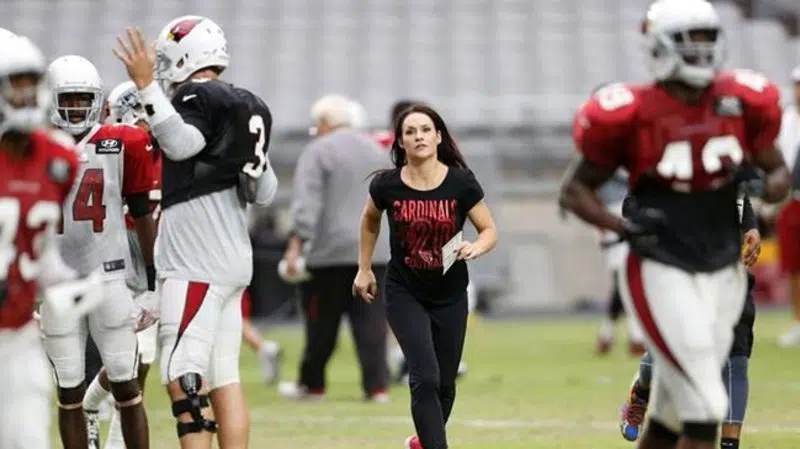
First female NFL coach sees video-game appearance as another sign of progress
TORONTO — A computerized likeness of Jen Welter barks directions to players on the sidelines, then knocks one on the helmet before sending them back on the field.
Welter recently became the first female coach in Madden NFL 20, calling it one of her “coolest” recent accomplishments.
“(The video game) was based on a conversation that I had as a consultant with Madden,” Welter said. “(I told them) ‘Girls can’t see themselves in your game.’ Everything is about a sin of omission in football. You don’t have to tell girls that they can’t play, right? You show them because they can’t see themselves playing anywhere.”
Welter was part of a four-woman panel that spoke Thursday night about the need for more female coaches in sports at all levels. She was joined by Toronto Raptors assistant coach Brittni Donaldson, WNBA and national team player Kayla Alexander, and sports activist Shireen Ahmed in conversation with She’s4Sports founder Ainka Jess.


